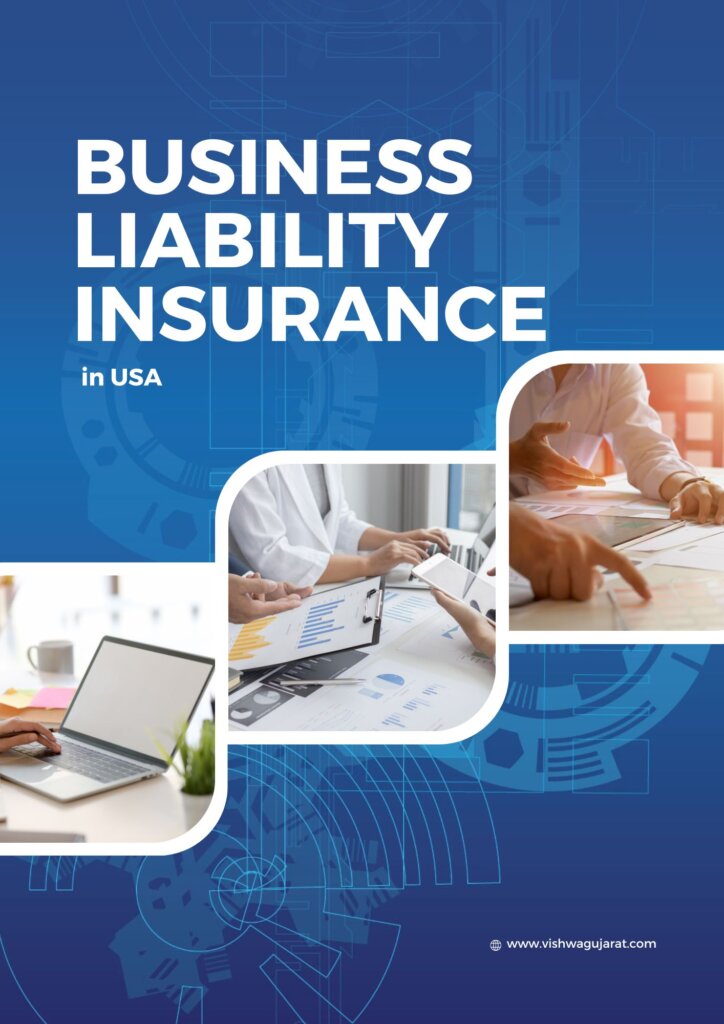Business Liability Insurance : Insurance for business liability is one kind of insurance that offers crucial security against the costs of lawsuits. It also assists entrepreneurs get leases and contracts secured. Even if a company isn’t directly accountable the customer may be able to sue for an incident which occurred in your shop or office. In the case of someone slips onto a slippery floor in your office and is injured and suffers injuries, it could be liable for medical bills.
Also Read this : Bank Of Baroda Senior Citizen Savings Scheme : બેંક ઓફ બરોડા સિનિયર સિટીઝન સેવિંગ સ્કીમ
What Is Business Liability Insurance?
Business Liability Insurance : Business liability insurance safeguards business’s financial interest businesses or business owners, in case they are subject to legal proceedings or third-party claims. These policies protect against direct financial liability incurred in addition to any legal defense costs. The three major kinds of business liability insurance include:
- General liability insurance
- Professional liability insurance
- Insurance for Product Liability
KEY TAKEAWAYS
- Insurance for business liability protects your financial security of businesses and business owners.
- Different types of commercial liability insurance include general liability insurance Professional liability insurance as well as products liability insurance.
- This insurance shields the business’s financial interests owners from the repercussions they could be liable for due to litigation brought against them, while also covering the legal fees associated with it.
- The cost of insurance is determined by the kind of business insured, as in addition to the place of operation (companies situated in areas that are prone to flooding are more likely to be charged).
Understanding Business Liability Insurance
Small-scale business owners place their personal finances in jeopardy in the case of a lawsuit related to their business. Sole proprietorships and partnerships are especially vulnerable to high costs and therefore most in need of this kind of insurance. Even with the structure of an limited liability entity (LLC) the owner is still susceptible to personal risk.
Business liability insurance covers the company’s assets and pay the legal expenses, like medical expenses for the customer injured in the store or suffers accidents that occur on the job, which employees suffer. 1
Businesses that have a tendency to take on greater risks in comparison to traditional liability could increase their coverage limits by a higher amount of loss umbrella insurance or reinsurance.
Insurance for liability also takes care of the expense of legal defense for a company and also pays for any settlements or awards that a business is required to pay as in accordance with legal judgements imposed against them. The costs could comprise compensation for damages, losses that are not monetary sustained by the party who was injured and the punitive damage. 1
For companies that lease their commercial property properties within which they operate General liability insurance shields against the potential liability for damages they could endure caused by floods, fire, mold or other physical disasters.
In addition, the business liability insurance also covers claims for false or misleading advertisements, such as the slander, libel, or copyright violation.

The Cost of Business Liability Insurance
Costs for coverage are usually dependent on a company’s perceived risk level. A building contractor that deals with heavy equipment and potentially dangerous equipment, like cranes and forklifts as an example, would pay more to cover the risk than an accountant who is at the desk.
Companies that fall into the category of lower risk may think about a business owner’s insurance policy (BOP) that combines general liability insurance and home insurance for a economical cost. Any new or added business liability insurance policies must include exclusions clauses in order to prevent the duplication of coverage by competing insurance companies, which will reduce cost. 2
What Is Directors and Officers (D&O) Liability Insurance?
Directors and Officers (D&O) Liability insurance a form of business insurance intended to safeguard members of the directors and executives within a firm. Directors and officers could have to defend themselves against lawsuits from third-party sources like their customers or suppliers as well as threatened with legal action from their own employees. D&O liability insurance safeguards their personal belongings as well as other assets if that they get sued. 3
What Are the Different Types of Business Insurance?
Business Liability Insurance : A company may purchase various insurance policies to safeguard its business from various risk. Each kind of insurance policy protects against various risk. Based on the type of business, it might require a variety of insurance. The most common types of business insurance are: 1
- General liability insurance covers bodily injury to other persons as well as property damage and personal injuries
- Commercial property insurance will protect you from any damage to the property you’ve rented or purchased to run your business
- Business income insurance safeguards against the loss of business income
- Insurance for professional liability, which covers you against any mistakes that your company may have made in the sale of its products or services
- Data breach insurance helps to cover the costs of cyber attacks or data breaches.
Is a Sole Proprietor Personally Liable for Debts?
Business Liability Insurance : A sole proprietor personally accountable for the obligations of the business. The sole proprietorship typically consists of only one person running a business who is accountable for all debts as well as other problems, for instance the event of a lawsuit. 4 There is no protection for the personal assets of the owner. A LLC however, on contrary, is a separate entity. an entity from its owners which means that when that an LLC gets sued, or has due to outstanding loans,, the private assets belonging to the owner of an LLC are not able to be reclaimed.

| Home Page | Click Here |
| Join Our Whatsapp | Click Here |
| Follow us on Google News | Click Here |
Business Liability Insurance – F.A.Q.
What Is Commercial Insurance?
Insurance for commercial purposes, often referred to by the name of business insurance safeguards companies from financial losses resulting from unexpected events occurring during commercial operations, like lawsuits, natural disasters or accidents. There are various types of commercial insurance that businesses can purchase which include coverage for damage to property as well as legal liability and risks relating to employees as well as other risks.
Businesses evaluate their needs for commercial insurance in relation to the potential risks which may differ depending on the nature of the business and the environment in which it operates. Learn more about the various kinds of insurance available to businesses and the benefits they offer.
What exactly does general liability insurance provide?
General liability insurance will cover settlement and legal costs in the event that a third party is suing you for bodily injury damages to property Copyright violation, libel, or slander. It may also cover medical expenses of anyone who are injured on your property or while conducting your business.
What is general liability insurance?
General liability insurance is a form of protection which protects your company in the event that the employees or you are found guilty of causing injury to a third-party inflicting damage to their property or damaging their reputation.
Does your company require general liability coverage?
In general, all companies must be covered by general liability insurance. This isn’t usually mandated by law, however the company that employed you as an employee, your customers or landlord might insist on it.
Which are two most common types of professional liability policies?
The two primary kinds of professional liability insurance are occurrence-based and claims-made. The majority of commercial liability policies will be claim-made, which will cover claims that are reported within the policy’s time frame. A policy that is based on occurrences means you’ll be protected for claims that occur during your policy’s time frame even if the claim is made after the policy has expired.